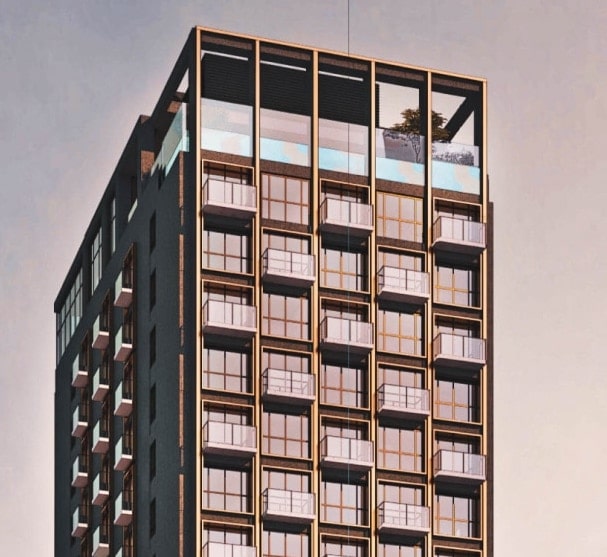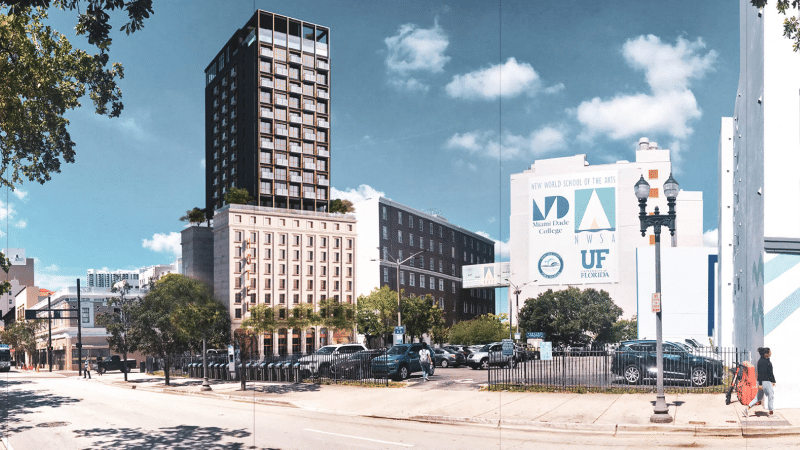Real Estate Development from an Industry Insider

At first look, developing real estate seems like an easy way of starting a profitable business. It does not require an academic degree, a certification from any authority or a specific legal qualification that needs to be met. Actually, judging by the TV shows, it is as simple as buying a property, putting lipstick on it and “flipping” it for a lot of cash. Unfortunately, it is not that easy. As in every business, developing real estate requires a certain set of skills and considerations that will determine the financial success of the project. If done right, real estate development can be very rewarding and profitable.
Jump Ahead to
Pick Your Type: Residential Real Estate or Commercial Real Estate
First, find the type of real estate that you are interested in, residential and commercial development are completely different animals—the financing, design, construction and exit strategy can vary a lot between both types of developments and not having a clear focus when starting might make the learning curve very difficult. For example, if your focus is to buy empty lots and develop single family homes, the best way to finance your project would be to probably establish a relationship with your local community bank. If you decide, however, to build a hotel, most likely a larger bank in the hospitality segment will be your best option. General contractors that are focused on building luxury single homes, for example, rarely have the ability or the experience to build a high-rise hotel at a competitive price. Start by picking your lane. You’ll have time to diversify in the future if you want.
Pick Your Scope: New Building or Remodel
After you selected the type of development, ponder scope: Do you want to develop from the ground up or do you want to buy existing properties and renovate them? Starting a project from zero has the advantage of not being limited by the constrains of existing conditions of a building. If you are a developer that wants to have lots of freedom on designing your project, then ground up is probably your best option. The only limitations you will likely encounter will be the zoning and use of ordinances governing the site. But other than that, you have a blank canvas: you can choose the architectural style, the project layout and maximize the square footage allowed. If you are more a find the diamond in the rough type of person, chances are that you will be happier remodeling existing properties. You can find that old building that for most people is an eye sore, but with your vision it becomes the hippest condo building in the middle of an up-and-coming neighborhood. The downside to remodeling is that most of the time you are limited to the current envelope of the building, and you have to work around the existing conditions in order to add value to it.

Pick Your Scale: Hint—”Go Big or Go Home” Does Not Apply Here
It’s done, you picked your type and your scope, it’s time to think on the appropriate scale for you. Do you have lots of experience in the real estate and construction industry and you want to start developing? Then maybe you can go for larger size projects. Is this more like a hobby for you or you want to switch to a new career? Then maybe start with a small more manageable project. Do you have a good team around you that can bring in the experience to take on bigger projects or are you flying solo? Starting with the right size project might be the difference between acquiring the experience and reputation to be a successful developer that changes neighborhoods or “yeah, that’s that guy that never completed that hotel.” Keep your ego in check. Don’t start by trying to develop the next 50 story building if you have not done it before—hone your skill first.
Know Your Risk Tolerance
If you invest in the stock market, do you check your portfolio every 5 minutes to see how it’s doing? Do you lose lots of sleep when you have to make a decision that might have an uncertain outcome? Have you lost an opportunity because you asked yourself “what if” too many times? Are you unable to “enjoy the moment” in your social/family life if things are not going necessarily the way you want at work?
The next thing you need to think about is risk tolerance, being honest with yourself when answering these questions could help you determine how much risk you are willing to take. For example, developing a building from ground up tends to be riskier than a horizontal development—Why? Very rarely can you complete a vertical development in phases: the project is completed once the entire building is finished and consequently you have limited cash flow coming from the project. On the other hand, doing horizontal development might be more manageable in terms of risk. If you buy a lot to build 20 houses, every time you complete one house and sell or rent it, your risk gets reduced as you start getting some money on the register, even though you might still be building the rest of the houses in the project. You want your development experience to be enjoyable and not to create anxiety that impacts other aspects of your life. Knowing your risk tolerance is key.
Key Takeaways
Lastly, before you embark on your development journey, find a mentor: someone with experience that you can bounce ideas off of, someone willing to give you the brutal feedback that will save you from making your next mistake. This person that is not surrounded by trees like you, but is comfortably seated outside the forest. He or she is someone that already thought once about that great idea that just came to you, but failed at it. There are plenty of resources to find a good mentor, including the free mentoring program provided by the federal government through the Small Business Administration (https://www.score.org/find-mentor). But sometimes your mentor is just that person that is willing to listen and give you the gift of experience.
So, here’s your checklist to follow when thinking about going into real estate development:
1. TYPE – Select your type, residential or commercial, starting as a jack of all trades makes the learning curve a lot steeper.
2. SCOPE – New building or remodeling. What’s your passion? Are you an artist or a mathematician? You want a challenge or a blank canvas?
3. SCALE – In real estate, size matters. Don’t let your first project be your last because you try to run before crawling.
4. RISK – No business is worth sacrificing your mental health, know your risk tolerance, we need you around. Be true to yourself.
5. MENTOR – Save headaches and money by learning from other’s mistakes, you don’t know everything. Be curious. Ask for help, you’ll be surprised how many people are willing to unselfishly lend a hand if you just ask.
